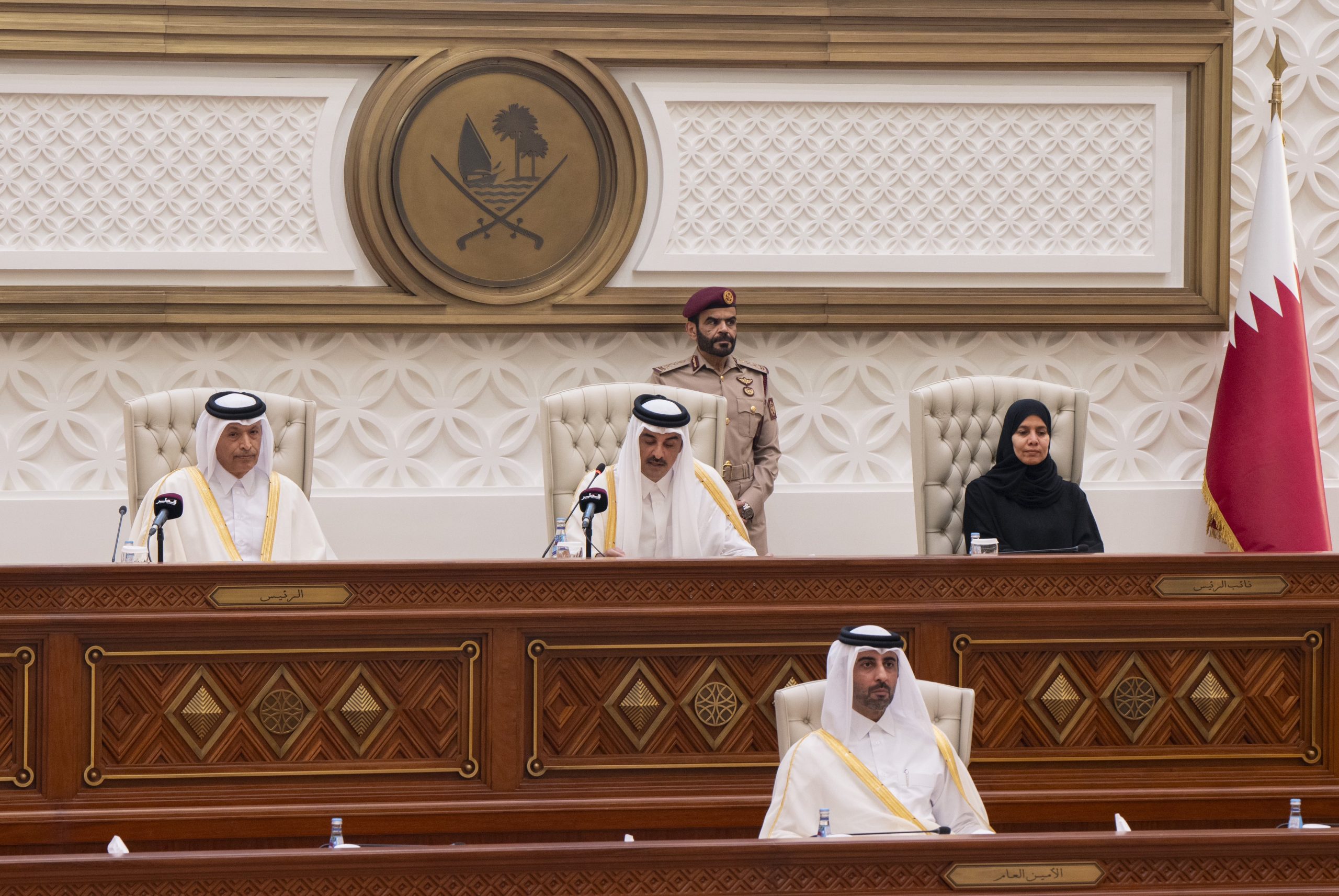In 2021, the first ever Shura Council elections took place where the public voted for 30 out of 45 members, with the Amir selected the remaining 15 members.
Qatar’s Amir Sheikh Tamim bin Hamad Al Thani has called for a new referendum for citizens to vote on a proposal to appoint members of the Shura Council instead of holding elections, in an effort to consolidate national unity.
During his latest speech at the Shura Council’s 53rd annual session on Tuesday, Sheikh Tamim said he has instructed the referral of the proposed changes to the constitution to the Council members, who will take the necessary steps to address the proposed amendments to the laws and other legislative measures.
“I have directed the referral of the draft constitutional amendments, including the return to the system of appointing members of the Shura Council, to your esteemed council for the necessary action in accordance with the provisions of the constitution while the Council of Ministers will take the necessary measures regarding the proposed amendments,” Sheikh Tamim said.
The first referendum on the Draft Permanent Constitution was in 2003, which witnessed a large turnout of 96.6 percent. The Constitution was then established on June 8, 2004.
In 2021, the first ever Shura Council elections took place where the public voted for 30 out of 45 members, with the Amir selected the remaining 15 members.
According to the initial referendum, any changes to these laws must be made by the Shura Council, which could only act once its members were elected.
Following the 2021 vote, Sheikh Tamim directed the Council of Ministers to prepare legal amendments to promote equal Qatari citizenship. He indicated that these amendments would be presented to the Shura Council for approval and modification.
Reflecting on the Shura Council elections, Sheikh Tamim emphasised that the voting process was part of the ongoing development and maturation of the political system, which remains open to evaluation and future changes.
“I had called for the Shura Council elections despite the reservations of many loyal citizens[…]I said at the time that it was an experiment and that we would review it, evaluate it and extract the results from […]which led us to propose the constitutional amendments,” the Qatari leader noted on Tuesday.
Sheikh Tamim also said that the Shura Council “is not a representative parliament in a democratic system, and its status and powers will not be affected whether its members are chosen by election or appointment”.
“We are all family in Qatar,” he stressed. “Our unity and solidarity are above all else.”
A ‘product of public discourse’
Dr. Andreas Krieg, a senior lecturer in security studies at King’s College in London, told Doha News that the Amir’s decision is “a product of public discourse” following the past experience with the Shura Council elections in 2021.
“Qatar is a very small and intimate society where socio-politics are being handled on a face-to-face and person-to-person basis. Socio-political issues are not being solved at the ballot box but traditionally via families and tribes who all have a direct relationship with the centre of power,” he said.
While the announcement of the country’s first Shura Council elections three years ago was met with global and local praise, the electoral law itself was criticised for its exclusion of some members of Qatari society, which sparked debates.
Following the elections, the Amir stressed the importance of “intensive social and educational work” to counter “tribal bigotry vis-à-vis public interest or loyalty” to Qatar and its national unity.
“In many ways the idea to open up the Shura Council to elections broke with socio-political traditions. And while there was support for it, there were also a lot of voices who said ‘if the system isn’t broken, don’t fix it’,” Krieg said.
“The return to appointing Shura Council members rather than having them elected is really the product of public discourse and a response to public demands,” he added. “In many ways then, this is a democratic decision.”
Meanwhile, Qatar’s Prime Minister and Minister of Foreign Affairs Sheikh Mohammed bin Abdulrahman Al Thani said the Amir’s Shura Council speech upheld “the supreme interest of the state and the people”.
“His Highness’s speech emphasised the importance of prioritising the higher interests of the state and its people, reaffirming our principles and values, and drawing on our experiences in facing challenges and shaping the future,” Sheikh Mohammed said on X.
“This is our commitment to an effective and prosperous state, with its strength rooted in the unity and solidarity of its people,” he added.
Sheikh Joaan bin Hamad bin Khalifa Al Thani, the Amir’s brother, described the speech as “historic”.
“Thanks to God, and then to the wisdom and leadership of His Highness the Amir of the country, the State of Qatar has consolidated its global civilisational role, economic development, and social cohesion,” he said on X.







